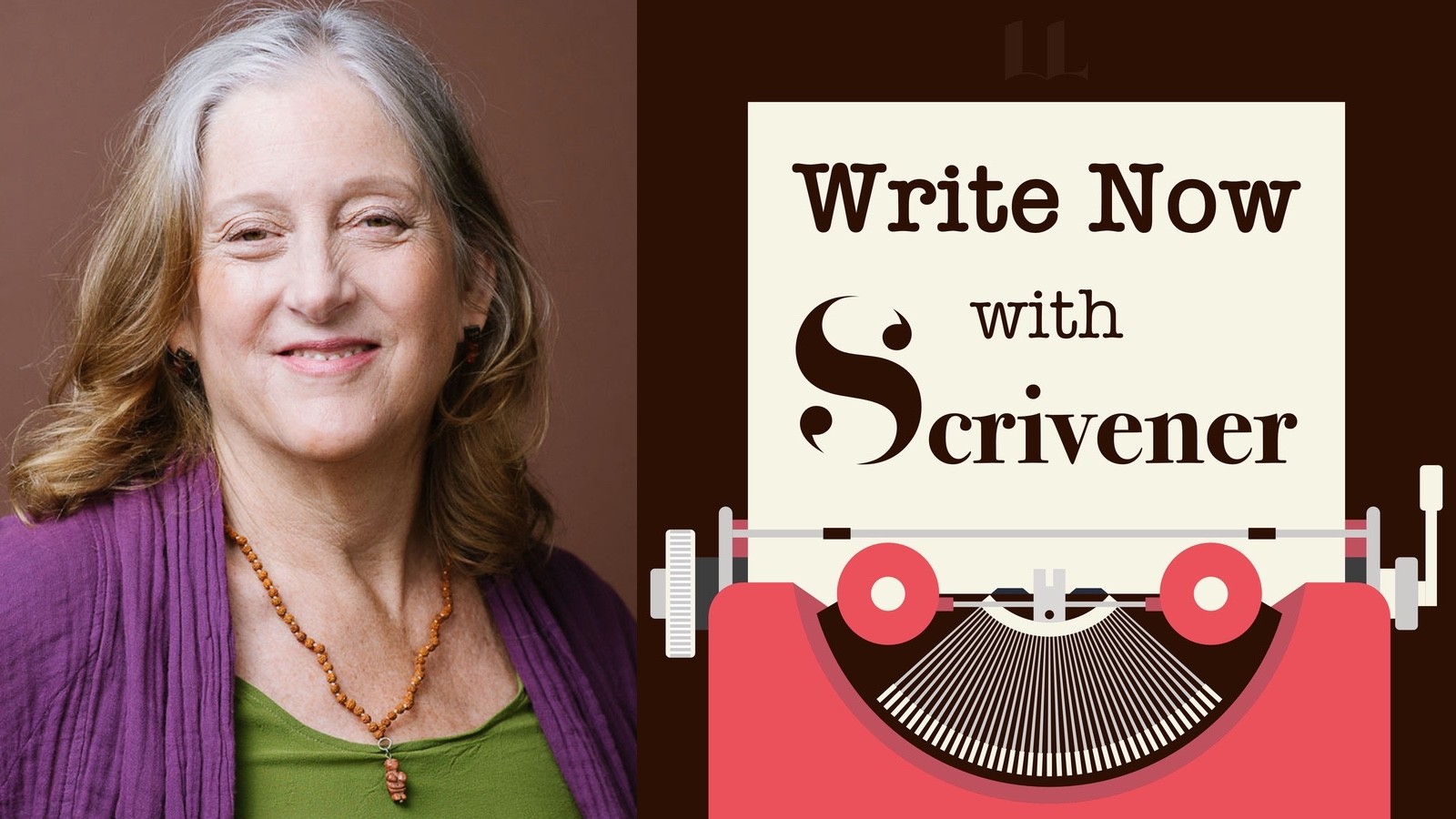Annie Finch is a poet, writer, critic, editor, playwright, librettist, translator, and witch.
Write Now with Scrivener, Episode no. 10: Annie Finch, Poet, Writer, and Witch

Annie Finch is a poet, writer, critic, editor, playwright, librettist, translator, and witch. She has written poetry, criticism, memoirs, and works on meter and form, and is the founder of Poetry Witch Community, where she teaches meter, scansion, and magic.
Show notes:
- Annie Finch
- Poetry Witch Blog
- The Poetry Witch Little Book of Spells
- Louise Labé: Complete Poetry and Prose
- Occasioning Poetry
- Heide Göttner-Abendroth: Matriarchal Societies, Studies on Indigenous Cultures Across the Globe
Learn more about Scrivener, and check out the ebook Take Control of Scrivener.
If you like the podcast, please follow it in Apple Podcasts or your favorite podcast app. Leave a rating or review, and tell your friends. And check out past episodes of Write Now with Scrivener.
Annie Finch is a poet, writer, critic, editor, playwright, librettist, translator, and... witch. She has written books of poetry, criticism, memoirs, and works on meter and form, and is the founder of Poetry Witch Community, where she teaches meter, scansion, and magic.
Annie told me by email, "I've been a passionate Scrivener user for a decade and LOVE few things more than talking about Scrivener." It's interesting how much writers can actually love the tool that they work with. Annie said, "Sometimes I think writers fetishize their physical tools. [Scrivener] is the interface between our inner selves and the world. And as such, we love the tool, even if it's a software."
Annie is a witch; this may have something to do with the fact that she was born on Halloween. "You know, it could be because it was a national costume choice for all those years, so I got comfortable with the feeling of being a witch, and I love the empowerment of it. I didn't really know about witchcraft until I was about 30, and moved to California and found a real witch. But I'd say what I thought was being a poet in all the years was actually kind of being a witch as well."
I asked Annie what is poetry. She said, "It's mysterious, how people ask this question a lot. I don't hear people asking what's dance, what's painting? You know what's fiction, but about poetry, people often ask the question, and my feeling is that this is because poetry in the 20th century became visually focused and lost some of the connection with the ear and the body and the mouth, which is the connection of meter and rhythm. Poetry is a magical way of arranging language, through the use of repetition. It could be any kind of repetition, it could repeat a conceptual pattern, it could repeat a phrase, it could repeat a metrical rhythm, but whatever is repeated is repeated in a predictable way. The unique power of poetry comes through this predictable repetition of any language element. It's that simple."
We discussed how people don't read poetry much any more, but they hear it a lot, in rap music, or in the songs of Bob Dylan. Annie said, "It's not surprising at all that rap is now so popular because rap is poetry in the sense that I'm talking about; it uses the same rhythm as Anglo Saxon poetry uses normally. Most rap has an essential rhythm with four strong beats on every line. I think the key to the mystery is the phrase that you used, 'nobody reads poetry anymore.' The fact is that poetry is really not meant to be read. In my experience, the most rich experience of poetry comes from hearing it and speaking it through in the body."
Annie describe herself as a formalist, "That would be the word for contemporary poetry in meter. It does use meter and rhythm quite a bit, which a lot of poets nowadays don't. I think I'm a religious poet in many ways, and a political poet as well. Being a witch, I write about magic I write about sex as spiritual practice, I write about nature, I write about the body, I write about goddesses, and mysticism."
I've interviewed many authors for the Write Now for Scrivener podcast, many of whom use Scrivener for long-form projects, but I was curious to see how Scrivener could be used with poetry. Annie said, "The first thing that I really got excited about using Scrivener for was adjusting and rearranging the order of poems within a book, because for me a book of poems is like a giant poem, and the structure is crucially important. Then I began to realize the value [of Scrivener] in terms of revision, because I'm fanatical reviser; I can revise a poem dozens or hundreds of times. The snapshot feature is unbelievably helpful for me. I just take snapshots, whenever I feel like I don't want to lose this draft, I might want to go back to it or for my archives, in the future."
Poetry can be mysterious. "It's a wonderful mystery to me how some poems can come in a flash and never change at all, others have to be revised for decades before I get them right."
Kirk McElhearn is a writer, podcaster, and photographer. He is the author of Take Control of Scrivener, and host of the podcast Write Now with Scrivener.

